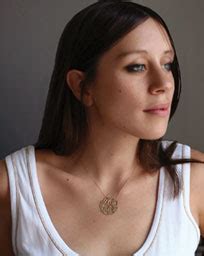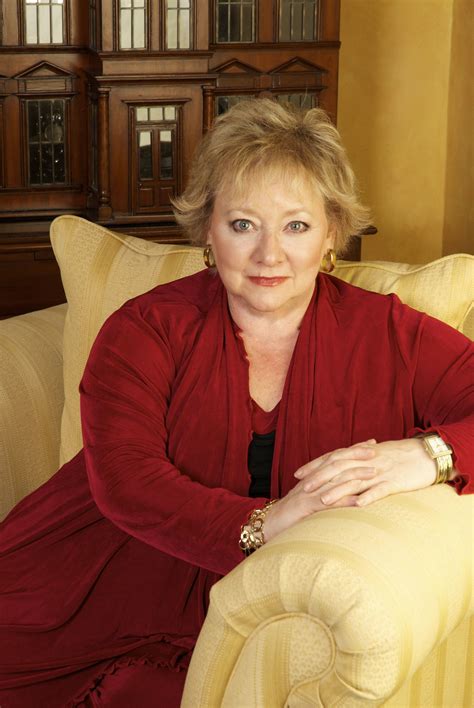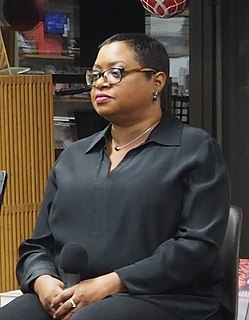A Quote by Anna Godbersen
Among her other talents were forgetting what she did not like and ignoring what she preferred not to see.
Related Quotes
And so when Mrs. Darling went back to the night-nursery to see if her husband was asleep, all the beds were occupied. The children waited for her cry of joy, but it did not come. She saw them, but she did not believe they were there. You see, she saw them in their beds so often in her dreams that she thought this was just the dream hanging around her still.
But when did you see her, talk to me? When did you see her go into the cave? Why did you threaten to strike a spirit? You still don't understand, do you? You acknowledged her, Broud, she has beaten you. You did everything you could to her, you even cursed her. She's dead, and still she won. She was a woman, and she had more courage than you, Broud, more determination, more self-control. She was more man than you are. Ayla should have been the son of my mate.
The doctor's wife wasn't a bad woman. She was sufficiently convinced of her own importance to believe that God actually did watch everything she did and listen to everything she said, and she was too taken up with rooting out the pride she was prone to feeling in her own holiness to notice any other failings she might have had. She was a do-gooder, which means that all the ill she did, she did without realizing it.
I think that one morning, the Papess woke in her tower, and her blankets were so warm, and the sun was so golden, she could not bear it. I think she woke, and dressed, and washed her face in cold water, and rubbed her shaven head. I think she walked among her sisters, and for the first time saw that they were so beautiful, and she loved them. I think she woke up one morning of all her mornings, and found that her heart was as white as a silkworm, and the sun was clear as glass on her brow, and she believed then that she could live, and hold peace in her hand like a pearl.
Just like Marilyn Monroe is a lot of girls' idol, that's how I feel about Dorothy Dandridge. And she any Marilyn were very close friends. She went through a lot, and people told her that she couldn't do certain things, but she didn't let that bother her. She said in her mind that she was going to do them and that nothing was impossible, and she did it. It was so sad... She died from drugs, and drinking as well.
From the first time he'd met her, he'd sensed an air of contradiction about her. She was very much a woman, but still retained a waiflike quality. She could be brash, and at times deliberately suggestive, yet she was painfully shy. She was incredibly easy to get along with, yet she had few friends. She was a talented artist in her own right, but so self-conscious about her work that she rarely completed a piece and preferred to work with other people's art and ideas.
She was beautiful, but not like those girls in the magazines. She was beautiful, for the way she thought. She was beautiful, for the sparkle in her eyes when she talked about something she loved. She was beautiful, for her ability to make other people smile, even if she was sad. No, she wasn't beautiful for something as temporary as her looks. She was beautiful, deep down to her soul. She is beautiful.
Why, i' faith, methinks she's too low for a high praise, too brown for a fair praise and too little for a great praise: only this commendation I can afford her, that were she other than she is, she were unhandsome; and being no other but as she is, I do not like her. (Benedick, from Much Ado About Nothing)
When I looked at [Fannie Lou] Hamer and that speech it seemed to me that she had to be the bravest woman ever, to come before that body and to assert her rights, when she knew that she was going lose that battle. But she did it anyway, because she knew she was speaking not just for herself and for that day, but for me, and for all the other young women who were coming behind her. She didn't know our names, but she was working for us. I find that incredibly empowering.
I was amazed by this person who, even though she had everything, would go to feed the homeless and visit sick children and Aids victims. It was like a fairy tale. Who was she really? Why did she do this? She was trying to find love. I wanted the world to see her kindness, her humility: I think she realised that would be her way.
But what I kept wondering about is this: that first second when she felt her skirt burning, what did she think? Before she knew it was candles, did she think she'd done it herself? With the amazing turns of her hips, and the warmth of the music inside her, did she believe, for even one glorious second, that her passion had arrived?






































